What is Universal Search?
Universal Search is the ability of a search engine to include images, videos, news, maps, books, rich snippets, knowledge panels, and other content types in the search results apart from the regular text-based results.
In other words, it is the ability of search engines to include other elements other than text on a single search results page. For example, a Google search for yoga poses would return results in multiple formats, including images and lists.
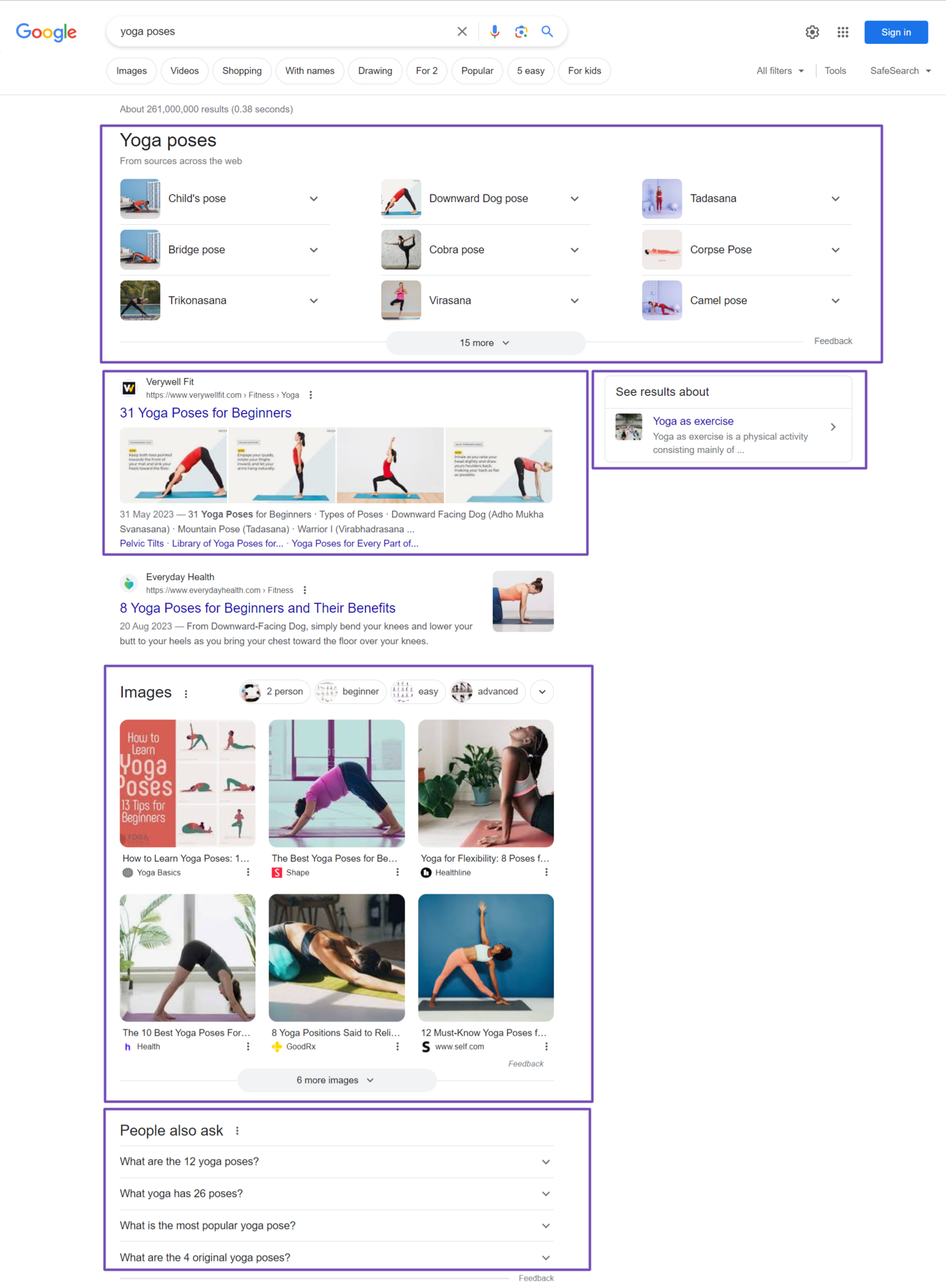
Similarly, this search query returns multiple videos at the top of the search results page. It also contains the contact details of a local business offering yoga lessons.
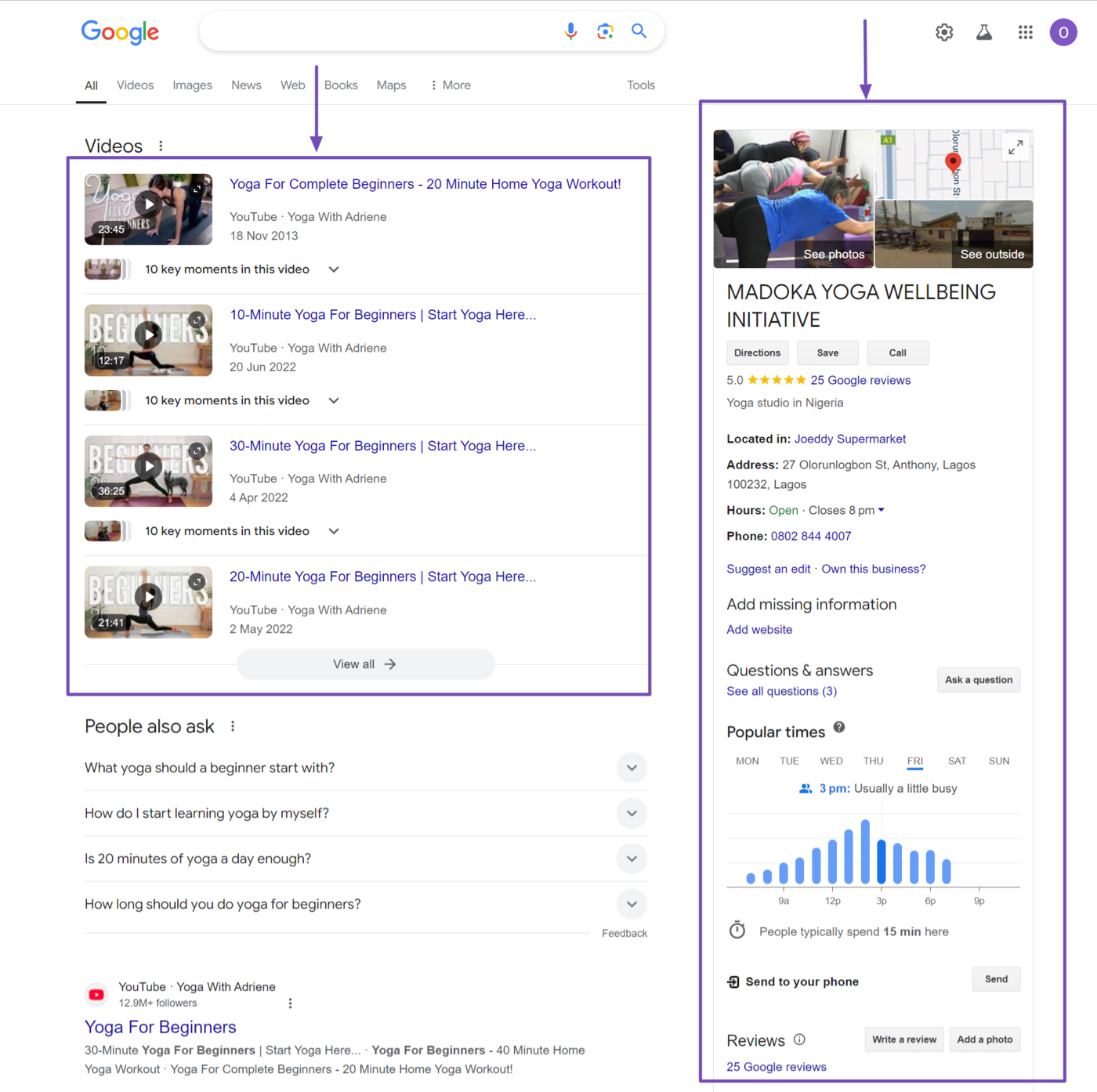
This search results page displays multiple business details and a map showing the location of several local businesses. Google calls this the local pack.
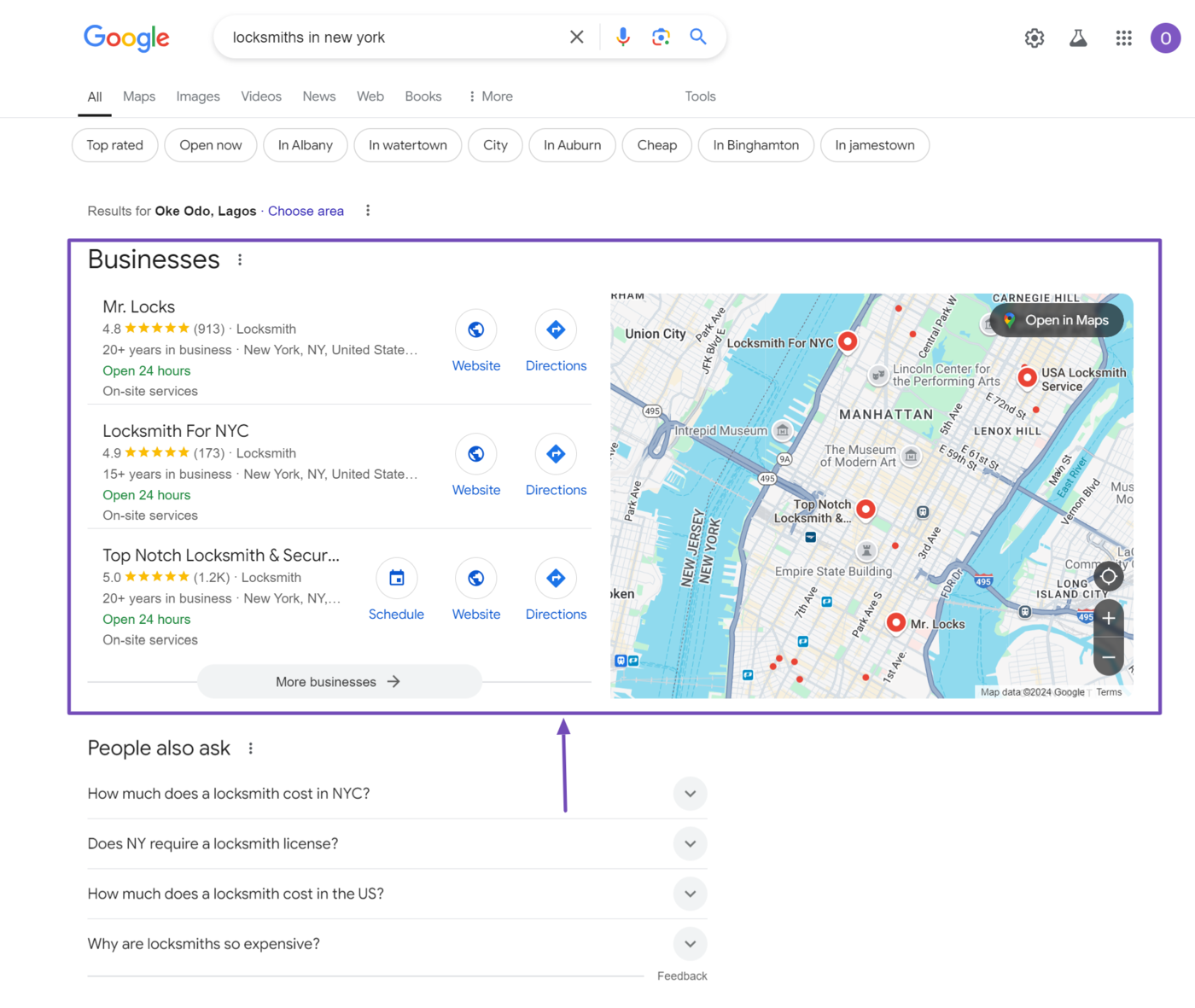
Meanwhile, the page below is a non-universal search results page. It only contains textual results and does not contain images, videos, maps, or other elements.
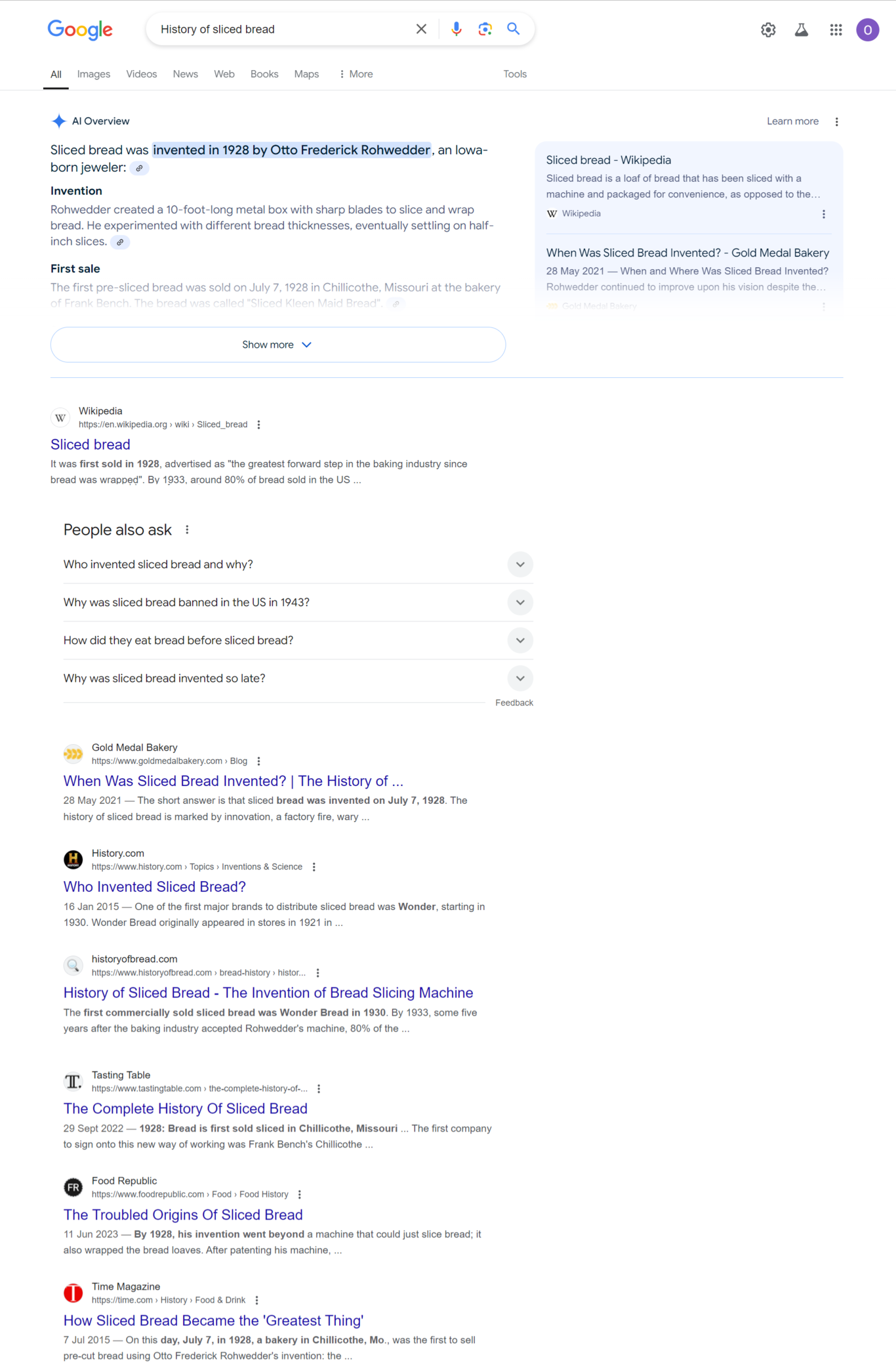
History of Universal Search
Google introduced universal search in 2007. In the documentation, Google mentioned that universal search is intended to provide the searcher with multiple results types on a single search results page.
At the time, Google matched the text-based web results with its images, maps, books, videos, and news results and displayed them on a single results page. Before universal search, Google displayed these results separately, and visitors had to click their respective tabs to access them.
This still happens on non-universal results pages where visitors have to click on the specialized results pages. For example, we can click Images to access the image results of our non-universal results page.
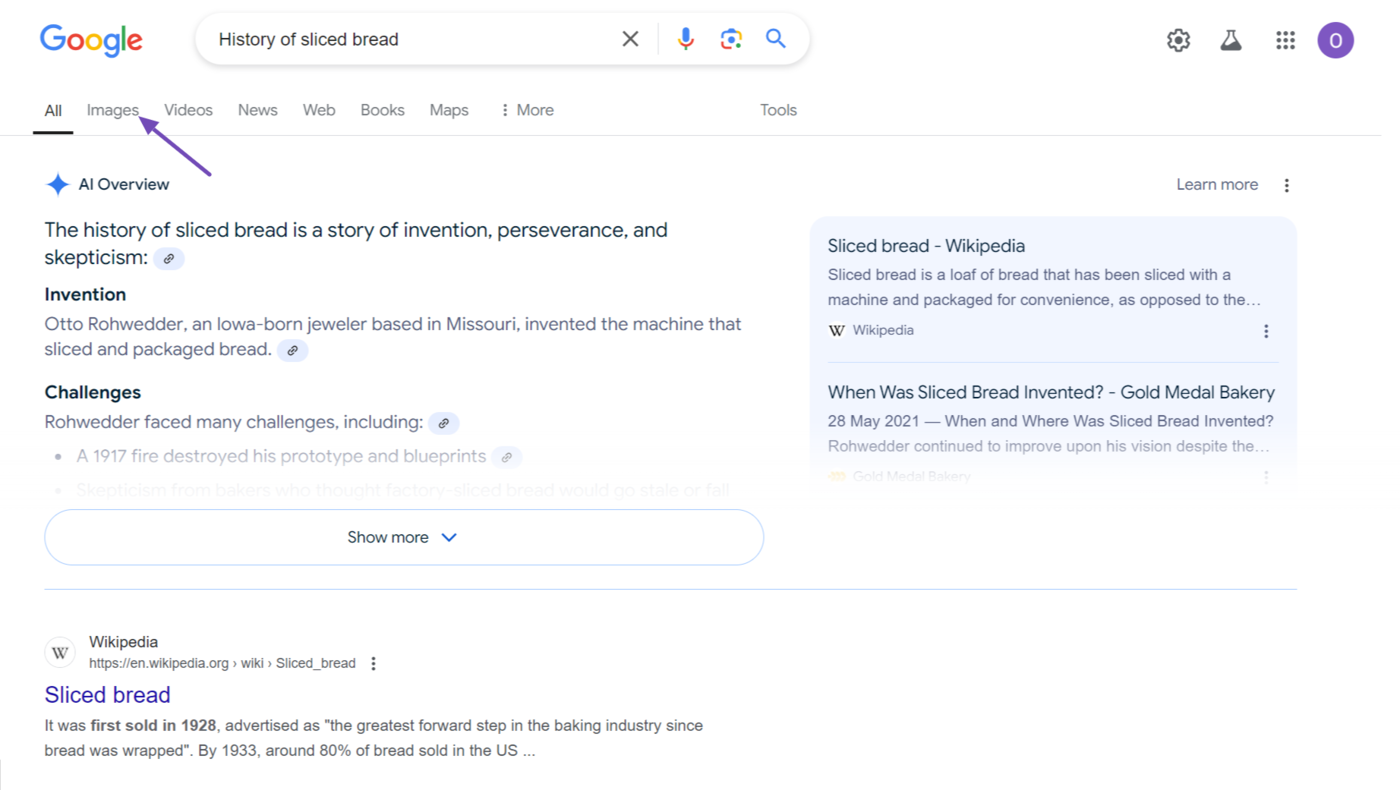
Once done, Google will display the image results for that search query.
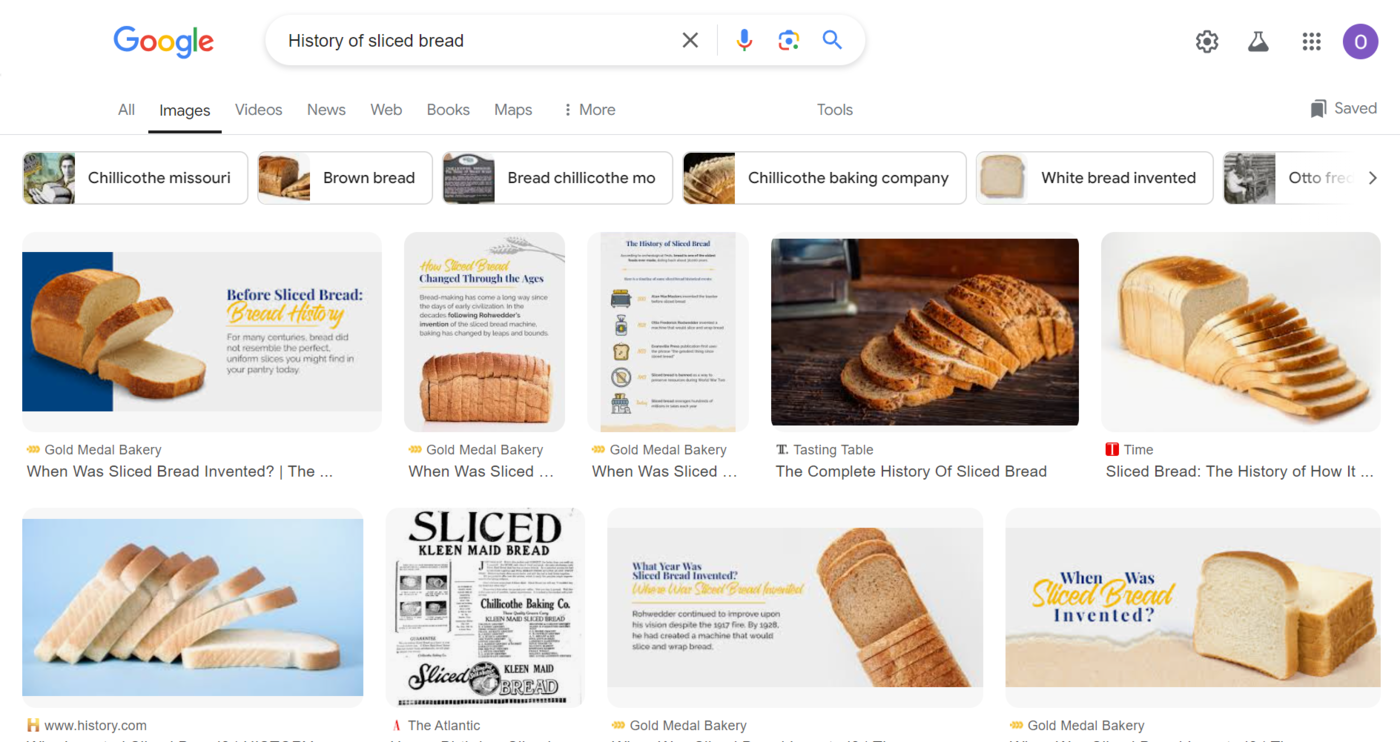
Importance of Universal Search
Universal search allows Google to provide visitors with results that satisfy their zoekintentie. It makes it easier for visitors to access the information they need.
Universal search is based on the premise that not all search queries can be answered using textual links. For example, some queries are better answered using maps, while others are better answered using videos or images.
So, universal search is Google’s attempt to provide visitors with results that are most relevant to them regardless of the content type. From Google’s perspective, universal search also allows Google to integrate multiple results pages into a single page.
Benefits of Universal Search
Universal search provides several benefits to searchers, bloggers, businesses, and even Google. We will now list some of them below.
1 It Enhances the User Experience for Visitors
Universal Search aggregates multiple content formats, such as videos, maps, images, and news, into a single search results page. This eliminates the need for users to navigate to multiple tabs or specialized searches, saving time and effort and improving their user experience.
2 It Increases Visibility for Local Businesses
Universal Search allows businesses to appear directly on zoekresultatenpagina's. This is particularly helpful with results pages containing the local pack or Google shopping results.
3 It Speeds Up the Search Process
Universal search supports features like featured snippets en knowledge panels, which provide users with concise answers or summaries on the search results page without requiring them to visit a webpage. This allows visitors to find information quickly.
4 It is Engaging and Visually Appealing
Universal search is more engaging and visually appealing than a bland text-based results page. Depending on the query, it can contain multiple elements and media, including images and video carousels, which capture user attention better than plain text results.
Limitations of Universal Search
Universal search comes with unique issues, which are experienced by visitors, bloggers, and businesses that rank on Google.
1 It Overcrowds the Search Results Page
Universal search combines multiple result types, including text, videos, images, and maps, on a single results page. This overcrowds the search results page and can overwhelm or distract the visitor, especially when it returns not-so-relevant results.
2 It May Return Less Relevant Results
Universal search may sometimes prioritize less relevant results over more contextually appropriate ones. For example, a search for “best laptops” might prioritize shopping ads or product images over detailed reviews or comparison articles. This mismatch can frustrate users and lead to a less satisfying search experience.
3 It Makes It Harder to Optimize Content for Results Pages
Businesses and content creators face challenges when optimizing their content for different universal search features. Instead of optimizing their textual content for the results page as with non-universal search, bloggers need to optimize for multiple universal search features, including images, videos, local packs, featured snippets, and rich results.